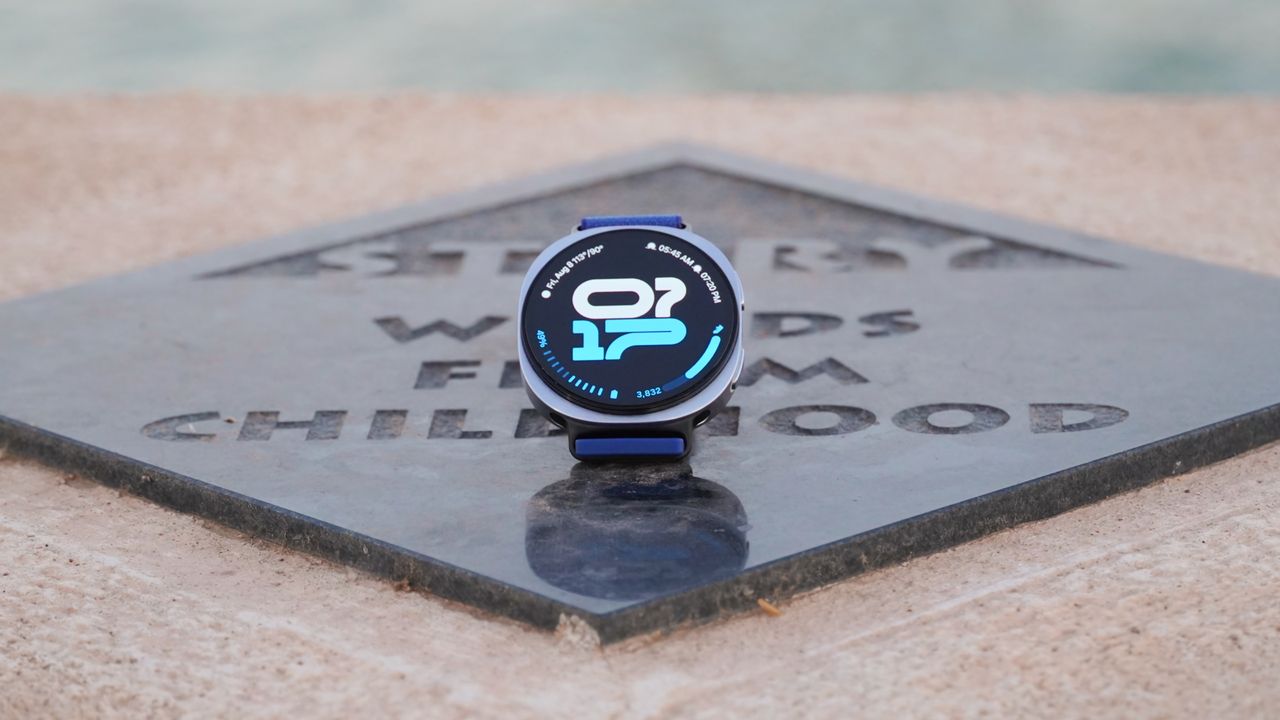
Samsung found its unique smartwatch direction with the Galaxy Watch 8. For better or worse, it's not trying to build thick and battery-focused smartwatches like OnePlus or Garmin. It's also not trying to go for minimalism like Google and Fitbit. Instead, the Samsung Galaxy Watch 8 brings a differentiated yet practical design with a thin-and-light build and excellent software.
Switching from beefy smartwatches like the Apple Watch Ultra and Garmin Enduro 3, having to charge the Galaxy Watch 8 multiple times per day was a tough adjustment. If you can get past that drawback, though, the Galaxy Watch 8 is a nearly-perfect Wear OS device. It's comfortable, provides useful and engaging health insights, and pairs nicely with the best Samsung phones.
Samsung Galaxy Watch 8: Pricing and availability
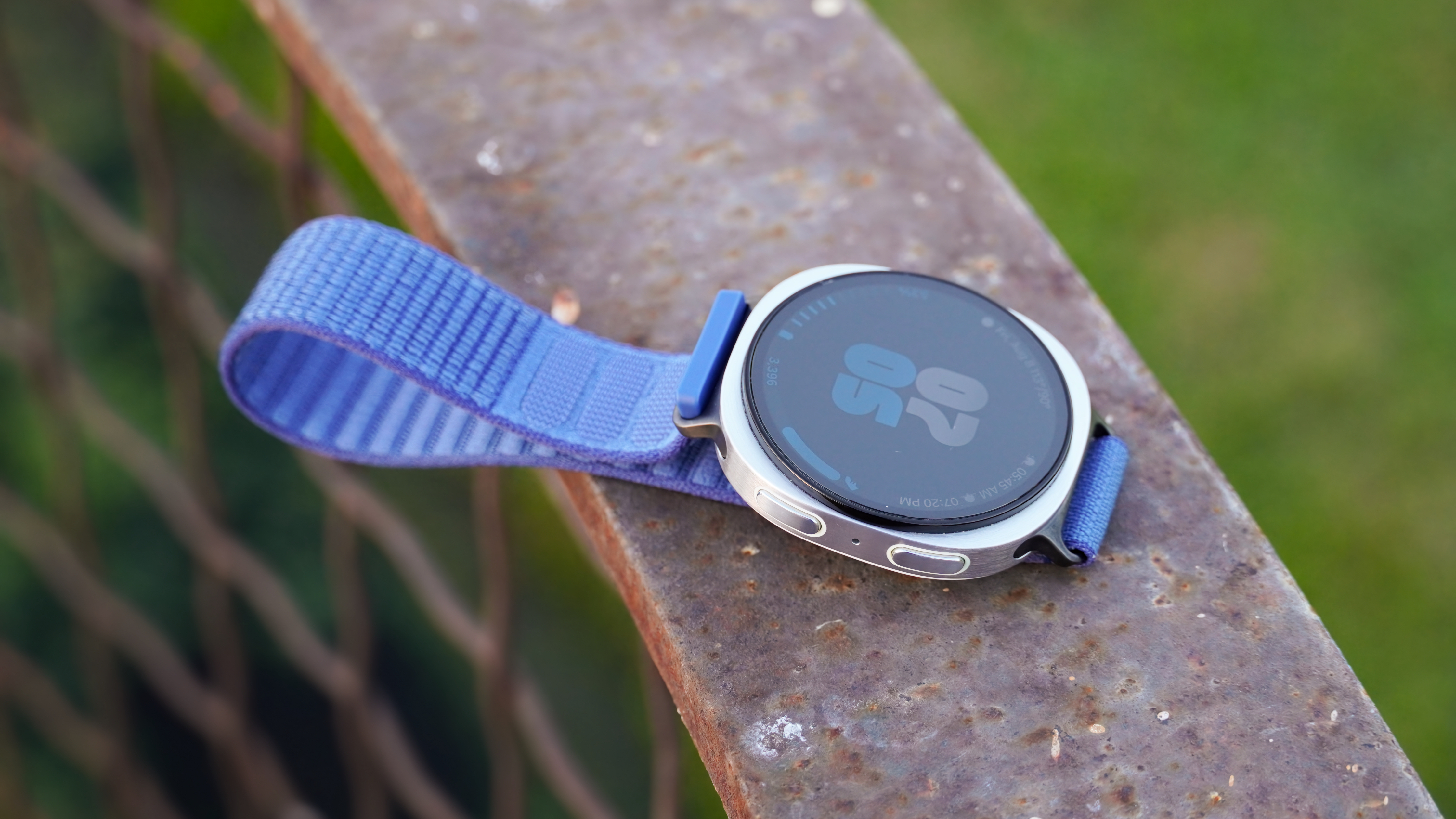
Samsung first revealed the Galaxy Watch 8 at a Galaxy Unpacked event on July 9, 2025. The entire Samsung Galaxy Watch 8 lineup is generally available as of July 25.
The 40mm size of the Galaxy Watch 8 starts at $349.99 in the U.S., up by $50 compared to the Galaxy Watch 7. You can upgrade to the 44mm size for an extra $30, bringing the MSRP to $379. Both models are available with an optional LTE upgrade costing $50 extra.
For perspective, the Galaxy Watch 8 Classic starts at $499.99, and the Galaxy Watch Ultra 2025 retails for $649.99.
Various deals on the best Samsung watches can make the wearables more affordable. I only paid $130 for my 44mm Galaxy Watch 8 by taking advantage of a trade-in deal and reserve credit at Samsung.
Category |
Samsung Galaxy Watch 8 |
|---|---|
Colors |
Graphite, Silver |
Sizes |
40mm: 40.4 x 42.7 x 8.6mm 44mm: 43.7 x 46 x 8.6mm |
Weight (w/out strap) |
30g (40mm); 34g (44mm) |
Durability |
5ATM + IP68 / MIL-STD-810H; Sapphire Crystal |
Display |
40mm: 1.34-inch (438x438) AMOLED, 3,000 nits 44mm: 1.47-inch (480x480) AMOLED, 3,000 nits |
Processor |
Exynos W1000 |
Memory |
2GB |
Storage |
32GB |
Battery |
40mm: 325mAh 44mm: 435mAh |
Charging |
Fast Charging (WPC-based wireless) |
Sensors |
BioActive sensor (Optical + Electrical Heart Signal + BIA), Temperature, Accelerometer, Barometer, Gyro, Geomagnetic, Light |
Connectivity |
LTE (optional), Bluetooth 5.3, Wi-Fi 2.4+5GHz, NFC, L1+L5 dual-frequency GPS, Glonass, Galileo, Beidou |
Software |
Wear OS 6 (One UI 8 Watch) with four years of software updates through 2029 |
Samsung Galaxy Watch 8: What's good
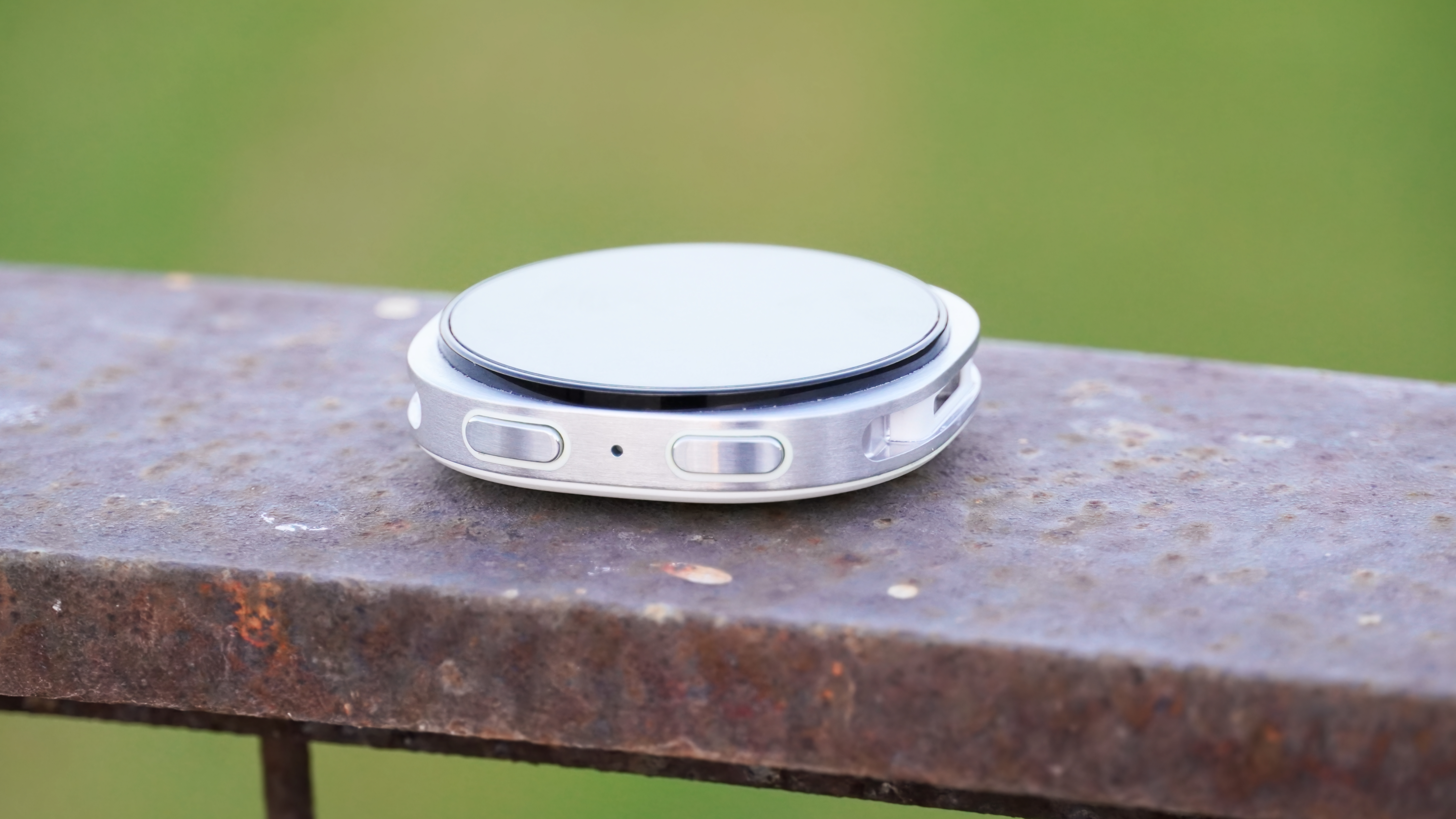
The Samsung Galaxy Watch 8 lineup stands out thanks to its controversial design: the squircle shape from last year's Galaxy Watch Ultra is now found on all the 2025 models. The company calls this a "cushion" design — it's like the circular screen is now resting on a squircle aluminum chassis, or a cushion.
The move serves two main purposes. The Galaxy Watch 8 now has a unique design language separate from the Apple Watch and competing Wear OS watches. More importantly, the larger footprint of the Galaxy Watch 8 on the wrist spreads out the internals better, allowing for a thinner form factor. Both size options measure 8.6mm thick, down from 9.7mm on the Watch 7.
The 40mm variant weighs 30 grams, and the larger 44mm size is only four grams heavier. All told, this makes the Galaxy Watch 8 one of the thinnest and lightest Wear OS smartwatches on the market. This is crucial, because it makes the Galaxy Watch 8 more comfortable to wear while working out and sleeping. To get proper health data, you'll need consistent sleep and activity tracking, and that's why the Galaxy Watch 8's slimmer design really matters.
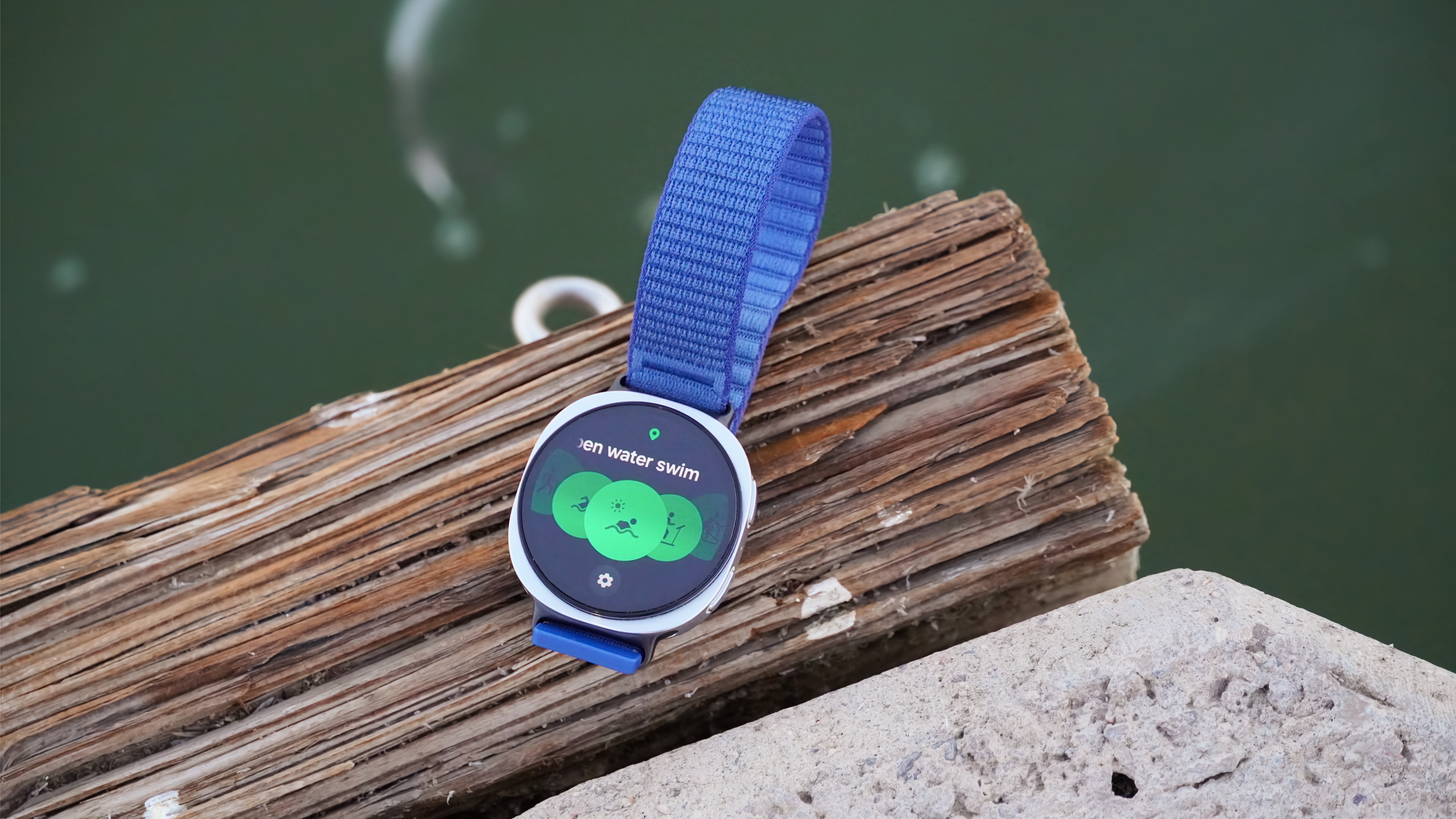
Specifically, the daily Energy Score is the central metric of the Samsung Health suite. It grades your energy level for each day out of 100, using data points like sleep tracking, activity tracking, and more. You need to wear the Galaxy Watch 8 to bed to get an Energy Score, but that wasn't a problem due to how comfortable the new design felt.
Compared to similar features, like Garmin's Body Battery metric, I found that Samsung overestimated my energy level yet conservatively recommended activity plans. For example, I'd get an Energy Score of 87 for the day alongside a message that I should prioritize rest.
To me, those are a bit contradictory, but I'd always rather a fitness watch push extra rest instead of the alternative, which is to encourage overreaching.
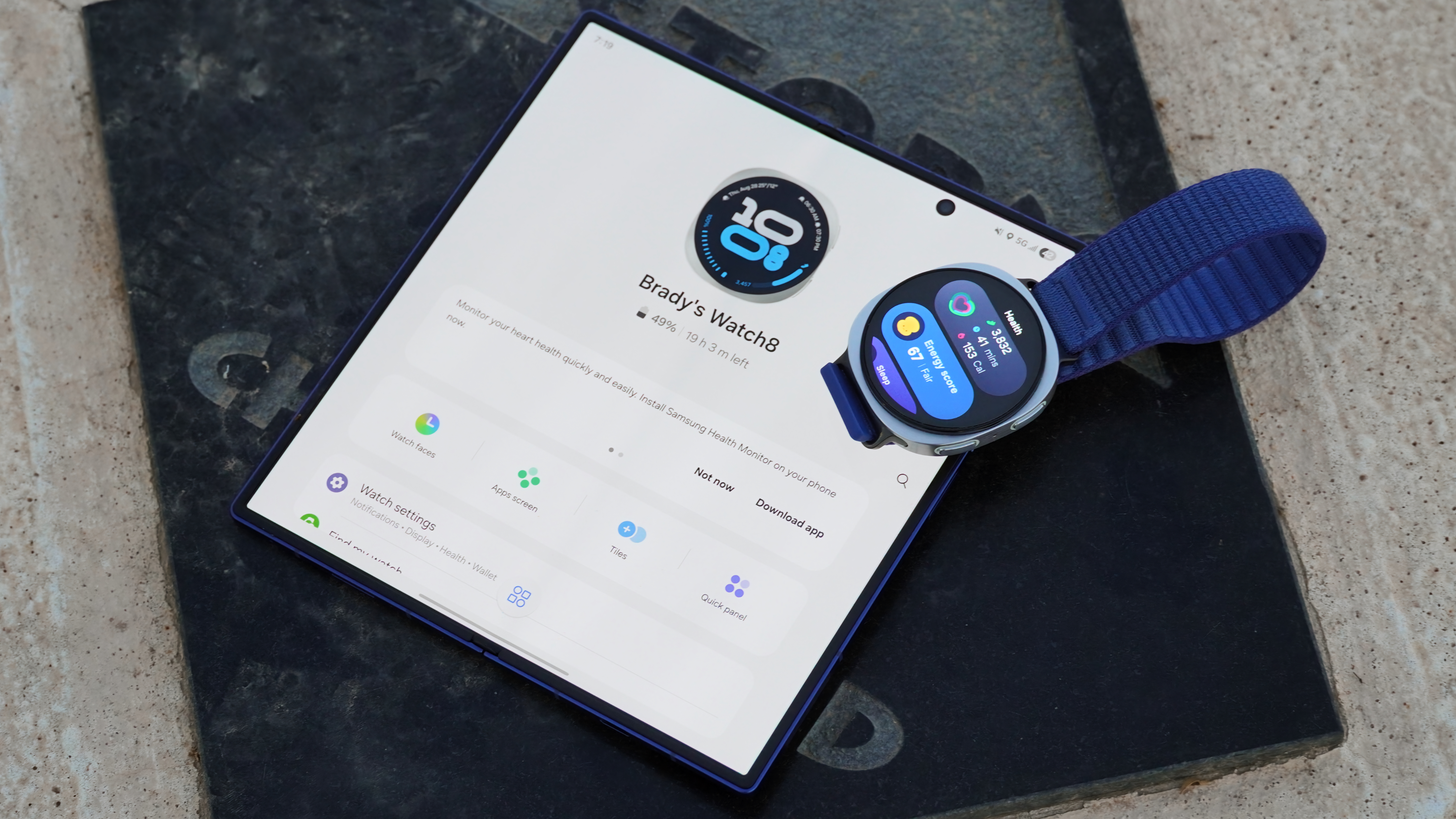
Fitness and health data was solid overall, with the Galaxy Watch 8 offering dual-band GPS and the Samsung BioActive sensor suite. I don't expect the Samsung watch to be as accurate as my Garmin in terms of heart rate or GPS tracking, but the Galaxy Watch 8 always gets close enough. We've already covered a few of the biggest Samsung Health features this year in-depth, including Antioxidant Index and Running Coach.
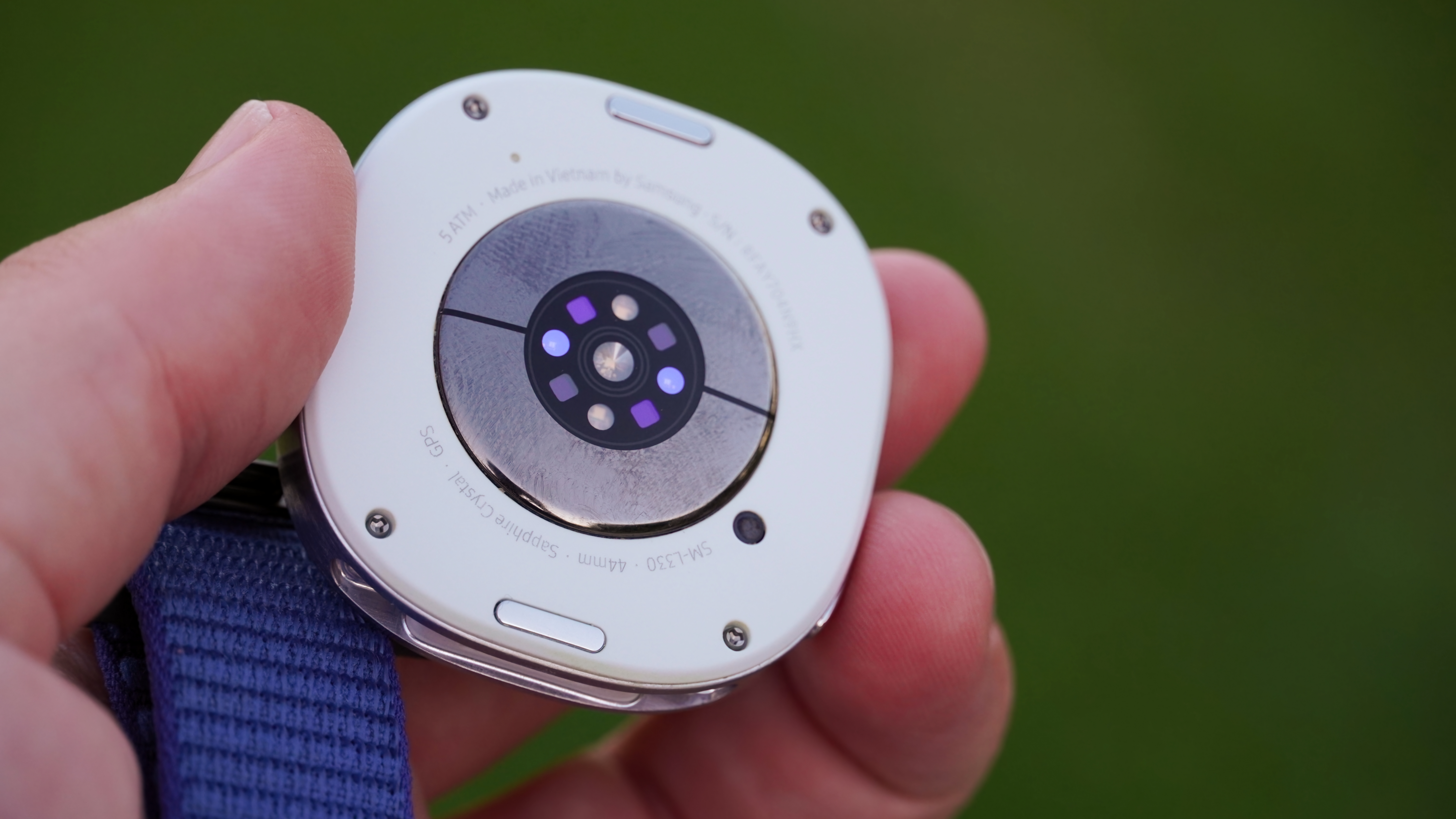
The entire experience is powered by One UI 8 Watch, backed by Wear OS 6 at the core. Wear OS 6 came with lofty goals, like improved efficiency and expanded third-party watch face support. I love how the operating system looks visually, and fitness data is presented in a colorful and engaging way. Still, there's work to do.
Samsung Galaxy Watch 8: What's not good
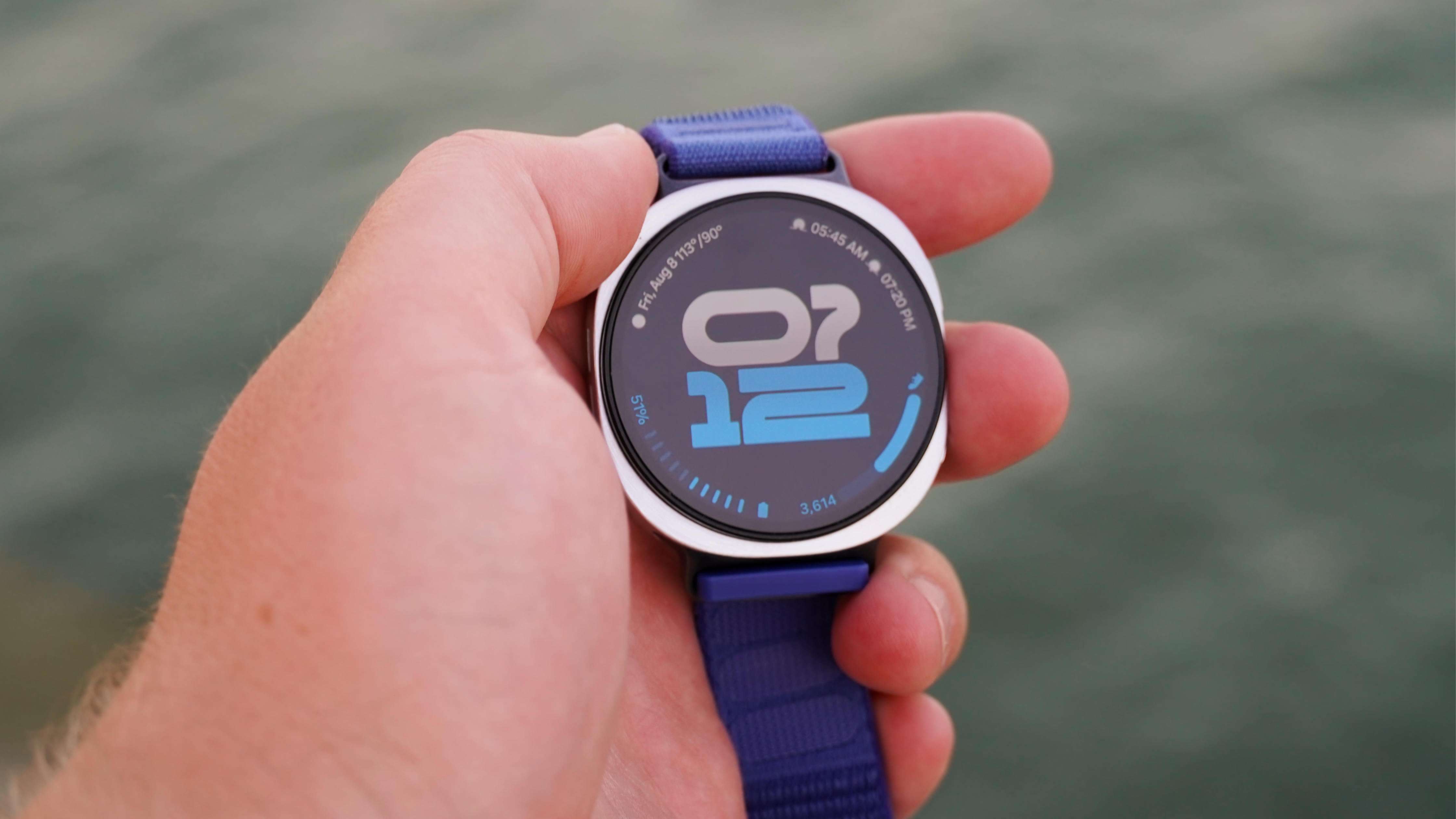
The biggest problem with the Samsung Galaxy Watch 8 is battery life. Even as Wear OS 6 was supposed to improve efficiency, I haven't been impressed with longevity on the Galaxy Watch 8. In order to have enough charge for sleep tracking and all-day wear, I need to make time for two 30-minute charge sessions daily — one right before bed and another in the morning.
Officially, the Galaxy Watch 8 should get 30 hours on a single charge with the always-on display enabled. As always, that figure depends heavily on how much you use it and how long GPS and fitness tracking are active. I got far fewer hours of use on days when I eclipsed 150 minutes of recorded activities. It makes sense, but it's something to consider if you live a very active lifestyle.
The smartwatch does charge fairly quickly, needing about 80 minutes to get from 0% to 100%. This makes my routine of two 30-minute charges per day possible. With that being said, I find that the more you need to charge a smartwatch, the more likely you'll forget to put it back on before going on with your day. That's why I'd recommend considering the Galaxy Watch Ultra if you need multi-day battery life or plan to track a lot of daily activities.
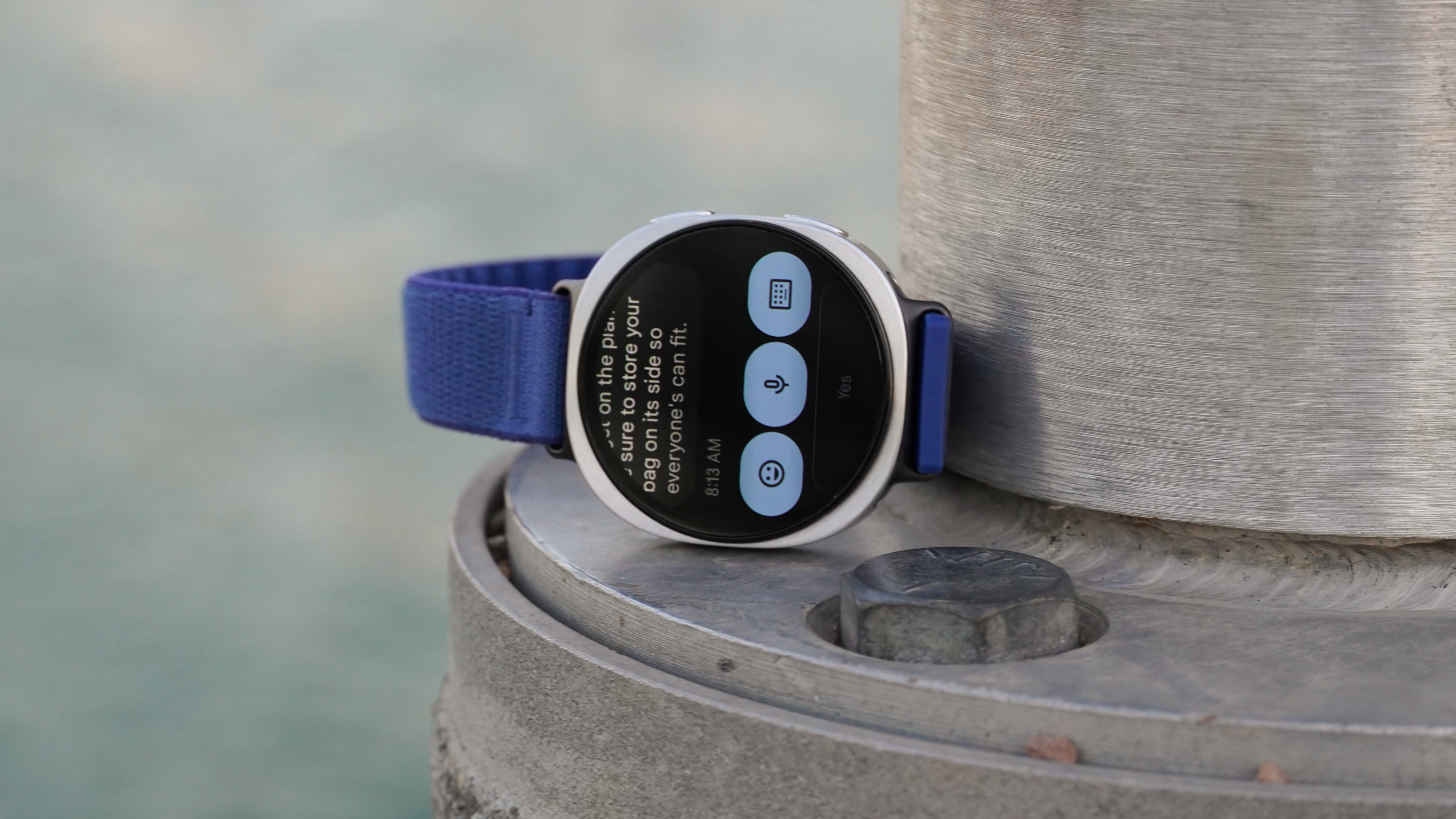
There were also times when I found the One UI 8 Watch operating system to be less than intuitive. Occasionally, you'll run into situations where Wear OS 6 and One UI 8 Watch clash — there will be two ways to do the same thing. For example, you can use Google's Wear OS dictation feature or the one built into Samsung Keyboard. I also found myself wishing there was a dedicated app for workouts separate from Samsung Health on my watch.
Navigation on the Galaxy Watch 8 could certainly be improved overall. The digital bezel system feels as gimmicky as ever, and the two side buttons feel underutilized. If you prefer tactile buttons, I'd strongly recommend taking a look at the Classic or Ultra models. Simply having a third Quick Button to customize on the Galaxy Watch 8 would've solved many of my navigation gripes. Unfortunately, the base model is the only one not to include it.
Samsung Galaxy Watch 8: Competition
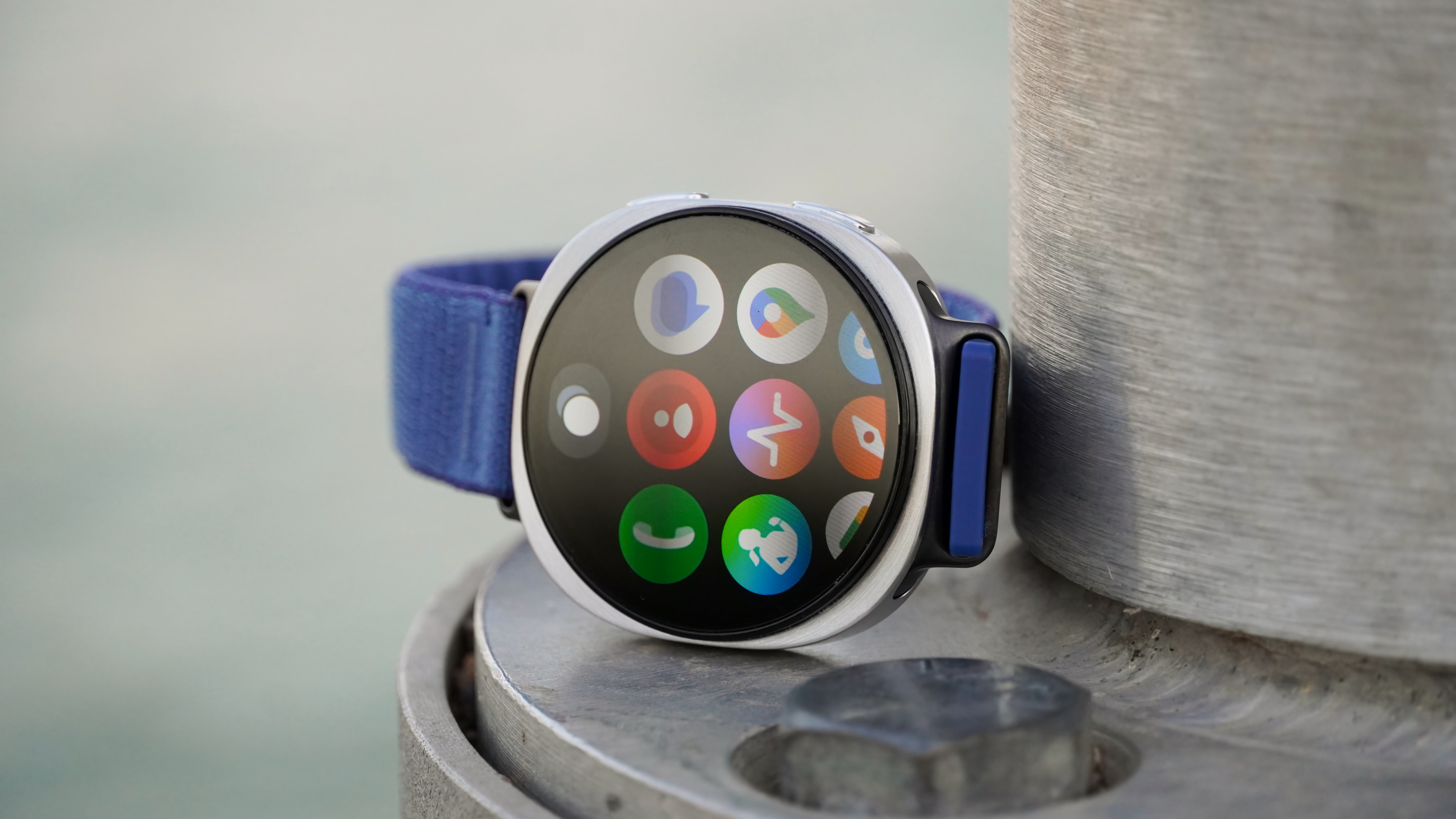
Samsung's biggest competitor is arguably the Google Pixel Watch 3, soon to be the Pixel Watch 4. Some might prefer the more dainty and minimalist style of the Pixel Watch compared to the very techy look of the Galaxy Watch 8. It'll also pair better with a Google Pixel phone, and could be a better pick for Android users that don't have a Google or Samsung device.
However, it's worth noting that the Pixel Watch 4 is rumored to measure around 14mm thick — practically in another category compared to the 8.6mm Galaxy Watch 8. The OnePlus Watch 3 gives you the best battery life in a Wear OS watch, but like the Pixel Watch 3, it's a chonker. The large size and bulky, rugged look might not be for everyone.
Outside of the Wear OS space, it's worth reviewing the best Garmin watches if you want long battery life above all else.
Samsung Galaxy Watch 8: Should you buy it?
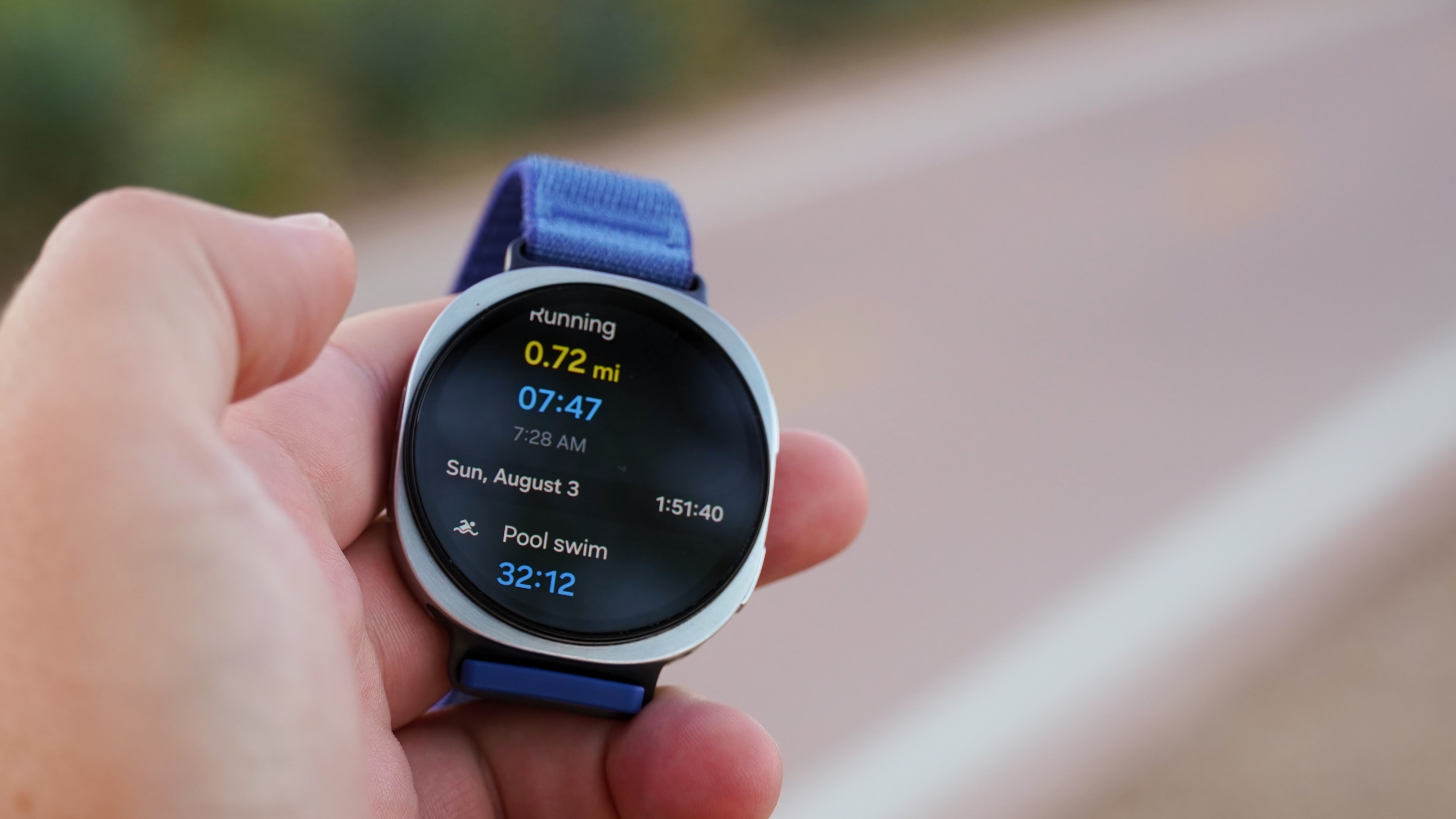
You should buy this if...
- You have a Samsung Galaxy phone and want a first-party companion
- You need a thin and light watch that will fit comfortably during workouts and sleep
- You like the mix of Gemini and Samsung Health software features available on this watch
You shouldn't buy this if...
- Multi-day battery life is a main priority for you, or if you track a lot of activity
- You need great hardware controls, like customizable buttons or a rotating bezel
- You don't like the hardware design or the One UI 8 Watch interface
With generally the same sensor suite, display offerings, and processor, the Samsung Galaxy Watch 8's hardware hasn't been completely overhauled. For some reason, it feels that way regardless. The switch to the squircle design isn't something you need to settle for — it's actually good. Go with a silver case color to contrast with the black display bezel, and you've got a seriously eye-catching Wear OS smartwatch.
Whether you feel compelled to upgrade to Galaxy Watch 8 will depend on your priorities. I traded in my Galaxy Watch 6 Classic because I found it to be too bulky for daily use and running, and the Galaxy Watch 8's thin and light form factor is a breath of fresh air by comparison. On the other hand, those looking for longer battery life and faster charging will be disappointed.
Overall, the Samsung Galaxy Watch 8 might be the best base-model Wear OS smartwatch to date.
A sleek Wear OS watch
The Samsung Galaxy Watch 8 is a thin and light wearable packed full of Wear OS features, on-wrist AI, and fitness and health tools. It has a unique design with functional benefits and excellent software support.







